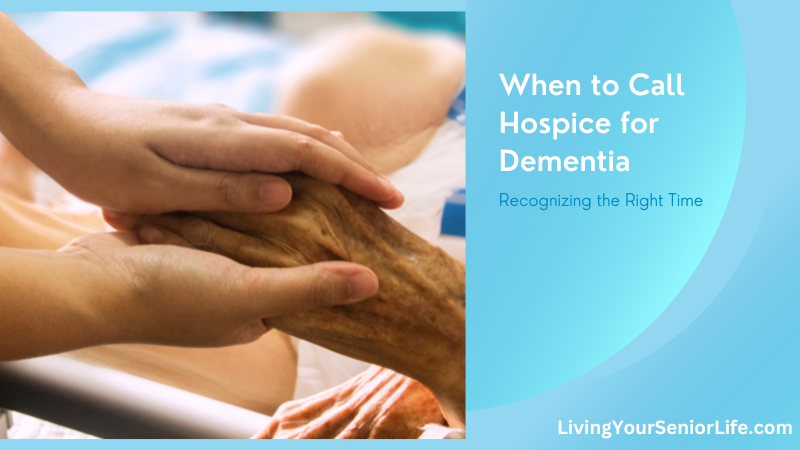This post is for informational purposes only and should not be used in place of the advice of a medical professional.
As we journey through the complexities of aging, one phenomenon stands out: the gradual return to childlike behavior among the elderly. This intriguing transformation sparks curiosity and prompts us to delve deeper into its underlying causes and implications. In this exploration, “Why Do The Elderly Become Childlike”, we’ll unravel the mystery behind why the elderly exhibit such childlike qualities, shedding light on the psychological, social, and physiological factors at play. Join me on this journey as we navigate through the nuances of aging and uncover the fascinating reasons behind this captivating phenomenon.
Key Takeaways:
- Childlike behavior in the elderly can be due to cognitive decline, dementia, or physical health conditions.
- Emotional and psychological factors play a role in why elderly individuals may exhibit a younger state of mind.
- Understanding and addressing the causes of age regression improves quality of life for older adults and eases caregiving.
Understanding Cognitive Changes in Aging
Understanding why older individuals might revert to childlike or childish behavior is crucial for providing the right support and care. Factors such as memory loss, cognitive impairment due to Alzheimer’s disease or other forms of dementia, and mental health issues can all contribute to this phenomenon. Specific medical conditions like urinary tract infections or untreated cataracts can exacerbate confusion and lead to dramatic changes in personality. However, it’s important to also consider the emotional and psychological aspects, as coping mechanisms for the significant changes that accompany aging. For elderly people, behaving in a childlike manner can sometimes be a form of unconscious defense mechanism against the great deal of loss experienced during this phase of life.
Exploring Dementia and Memory Loss
Dementia encompasses a range of medical conditions, like Alzheimer’s disease and vascular dementia, characterized by memory loss, cognitive impairment, and significant changes in behavior. Family members may notice that elderly people with dementia can exhibit mood swings, confusion, and even delusions. These symptoms can sometimes cause dementia patients to revert to a younger state of mind, displaying childlike behavior.
Cognitive Decline and Its Impact on Behavior
Cognitive decline is a broad term that refers to the gradual loss of cognitive functions, including memory and the ability to think and reason. This deterioration can influence behavior changes in older adults, causing them to act out or exhibit age regression. With potential impacts on parts of the brain like the frontal lobe, which is responsible for maintaining social norms, loss of inhibition may occur, resulting in behavioral changes that family caregivers find challenging.
Medications and Side Effects
Medications can often contribute to cognitive changes in the elderly, causing side effects such as confusion or forgetfulness. Urinary tract infections, which are common in old age, can be easily confused with cognitive decline due to their similar manifestations. Healthcare providers and professional caregivers must carefully monitor these side effects, as they can significantly affect an elderly parent’s cognitive functions and overall quality of life.
Emotional and Psychological Factors
In the journey of understanding why elderly people exhibit childlike behavior, it’s crucial to explore the emotional and psychological factors at play. These factors often intertwine with physical health but take distinct shapes in mental health issues, mood swings, and the emotional support necessary for a quality life in old age.
Mental Health and Effects of Aging
As older adults age, cognitive decline can manifest in various ways. Conditions like Alzheimer’s disease or other forms of dementia can lead to memory loss, which might result in regression to a younger state of mind. This age regression is not just a second childhood stereotype but a tangible shift often seen in dementia patients. For some, parts of the brain such as the frontal lobe, responsible for controlling behavior, are affected. This loss of inhibition can mirror a child’s behavior.
Recognizing Depression, Anxiety, and Mood Swings
Elderly become more susceptible to depression and anxiety, with these conditions often misinterpreted as mood swings or emotional outbursts. It’s critical for family members and professional caregivers to recognize signs of mental health issues. Sudden changes in behavior with no apparent reason, including withdrawal from social activities or a diminished interest in once enjoyable tasks, may signal underlying mental health conditions. Providing emotional support and consulting with healthcare providers or mental health professionals can enhance the quality of life for the elderly.
The Role of Emotional Support
The need for emotional needs to be met does not diminish with age. Older individuals often rely on family caregivers, professional caregivers, or a close friend for emotional sustenance. When elderly parent or relative experiences stress due to life changes, emotional support becomes their anchor. This can include both practical support, like assistance with basic activities or home care, and psychological support through respite care, participation in a support group, or engaging them in meaningful activity. Such nurturing can prevent or reduce the onset of behavior changes and promote positive interactions.
Interpersonal Relationships and Social Dynamics

As elderly individuals transition into old age, the dynamics of interpersonal relationships profoundly influence their behavior. Particularly, how they interact with family members, caregivers, and society at large can shape their actions and reactions, sometimes leading to childlike behavior.
The Influence of Family Dynamics
Family members play a key role in the lives of older adults, often witnessing firsthand any behavioral changes such as memory loss or mood swings. Whether it’s cognitive decline associated with conditions like Alzheimer’s disease or age regression that lacks an apparent reason, the family unit must adapt and respond. Aging parents may rely on adult children for support, reflecting a reversal of the caregiver dynamic. This shift can bring about a period of a second childhood, where elderly parents might seek comfort and love from those they once cared for themselves.
Caregiver and Elderly Interaction
For both professional caregivers and family caregivers, managing the sudden changes in an elderly person’s behavior is a delicate balance. It may involve addressing symptoms of dementia, mitigating the effects of a urinary tract infection, or navigating the complexities of frontal lobe atrophy, which can lead to dramatic changes in personality. Caregivers are tasked with providing quality of life while tending to the basic activities and emotional needs of caregiving recipients. Empathy, patience, and a clear understanding of the aging process and mental health issues become foundational pillars of effective care.
Communication and Understanding Needs
Effective communication between caregivers and the elderly is essential for understanding and meeting their needs. Often, old age brings with it cognitive impairment that affects communication. A caregiver that recognizes the significance of these changes can better support the elderly become more articulate about their needs. Listening with empathy and providing meaningful activity can help alleviate the stress of cognitive diminishment. Equally important is acknowledging the care needs that stem from physical problems such as untreated cataracts or hearing issues – rectified by something as simple as hearing aids – paving the way for improved interaction and reduced emotional outbursts.
Environmental and Behavioral Adaptation
Adapting to the evolving needs of elderly individuals requires understanding how environmental and behavioral factors contribute to childlike behavior. This includes creating safe spaces that foster independence while considering the effects of cognitive decline on their behavior.
Creating a Comforting and Empathic Environment
For elderly people, a familiar and empathetic environment can reduce stress and lessen behavioral changes like regression to a younger state of mind. Family members and professional caregivers can play a critical role by ensuring the space is safe and comforting, minimizing triggers that could cause emotional outbursts or mood swings. Maintaining involvement in social activities and providing meaningful activity can help older adults feel valued and less isolated.
Aging and the Need for Autonomy and Independence
Maintaining autonomy and independence is vital for the dignity of older individuals. Despite cognitive impairment or memory loss, it’s crucial to encourage self-sufficiency in basic activities to enhance their quality of life. Modifications to the living environment can help, such as hearing aids or addressing vision problems can aid in reducing the loss of inhibition commonly associated with cognitive decline.
Adapting To Life in Assisted Living
Transitioning to assisted living can represent a significant change for elderly individuals. Personalizing their new living space with items from their family home helps in retaining a sense of self. Adapting to these new surroundings may involve handling sudden changes in behavior or mood swings, potentially linked to an underlying medical condition such as a urinary tract infection or medication side effects. Family caregivers and staff need to ensure that a move to assisted living prioritizes continuity in daily routines and promotes a supporting environment for adapting to old age.
Practical Approaches to Caregiving

As caregivers, understanding how to navigate the shift in behavior among elderly individuals is crucial. Incorporating strategic and supportive methods can greatly impact their quality of life and your caregiving journey.
Strategies for Managing Childlike Behaviors
When your elderly parent exhibits childlike behavior, it’s important to first identify potential triggers. Cognitive decline and dementia can lead to these behavioral changes. Memory loss and mood swings may become apparent for no apparent reason. Establishing a routine that includes familiar people and meaningful activity can help in mitigating sudden changes. Also, using validation techniques to acknowledge their feelings without patronizing can be beneficial for both you and the aging parent, fostering better decision-making and cognitive function.
- Morning: Stick to a simple routine to minimize confusion.
- Late Afternoon: Be attentive to increased confusion or “sundowning.”
- Evening: Provide soothing activities to ensure a calm transition to bedtime.
In cases of dementia patients, especially those with Alzheimer’s disease or frontotemporal dementia, the frontal lobe can affect judgment, leading to age regression or loss of inhibition. It’s essential to recalibrate how you communicate and assist in their basic activities while maintaining respect for their adult status.
Caregiving Support and Respite Care Options
Caregiving can be a round-the-clock responsibility, and at times you may need support. Respite care allows family caregivers to take a break, which is vital for maintaining their own health and well-being. Discuss with a healthcare provider or a support group about in-home respite options or adult day care that can create a positive light on the caregiving experience.
- In-Home Care: A professional caregiver provides services in the family home.
- Adult Day Care: A setting where elderly people engage in social activities while receiving care.
Furthermore, it is a good idea for caregivers to connect with others in similar situations to exchange coping mechanisms and feel less isolated.
Professional Help and Coping Mechanisms
For dramatic changes in behavior, seeking help from mental health professionals can guide family members through this aging process. These changes may indicate a medical condition, such as a urinary tract infection, or could be medication side effects. Assistance from professional caregivers can improve the situation vastly.
- Health Screening: Regular check-ups can uncover potential physical problems.
- Therapy/Counseling: Helpful for both caregivers and older adults to manage emotional challenges.
Remember, maintaining the dignity and independence of elderly people as much as possible is crucial. Seeking the support of networks or resources tailored for older individuals can go a long way in improving the quality of life for everyone involved.
Frequently Asked Questions
What is the relationship between age-related cognitive decline and regressive behavior in seniors?
As older individuals face age-related cognitive impairment, such as in cases of Alzheimer’s disease or vascular dementia, parts of the brain responsible for mature behavior may be affected. This regression, sometimes known as age regression, can manifest as childish behavior or a return to behaviors typical of a much younger individual.
How should one manage feelings of anger towards childlike behavior in elderly parents?
When handling feelings of frustration or anger towards an elderly parent displaying childlike behavior, patience is crucial. It’s important to remember these behavior changes are often out of their control. Seeking support from a professional caregiver, joining a support group, or setting time for respite care can be valuable in managing your emotional response.
What approaches are effective in dealing with self-centered behavior in the elderly?
Self-centered behavior in the elderly may result from them trying to express needs or desires in the only way they feel they can. Effective approaches include consistent communication, reassurance, and engaging them in meaningful activity. Professional caregivers and family members can work together to ensure the older adult’s quality of life remains a priority while also addressing their care needs and maintaining a positive light on the aging process.
Final Thoughts
In conclusion, the journey of aging is a multifaceted one, marked by numerous transformations and adaptations. The phenomenon of the elderly becoming childlike offers us profound insights into the human experience and the intricate workings of the mind and body. By understanding the underlying reasons behind this phenomenon, we can cultivate greater empathy, appreciation, and support for the elderly in our communities. As we continue to explore the depths of aging and human behavior, let us remember to approach each individual with compassion and understanding, embracing the richness of their experiences and the wisdom they offer us along the way.










